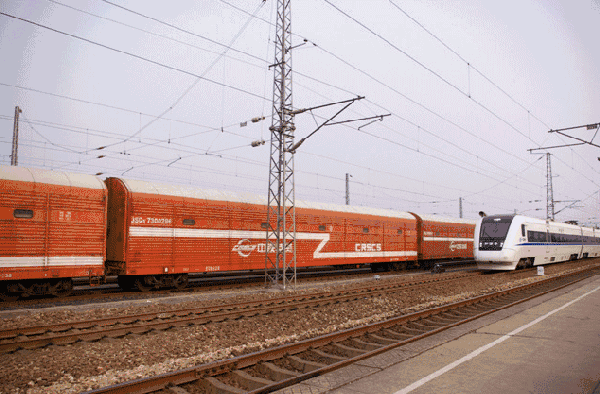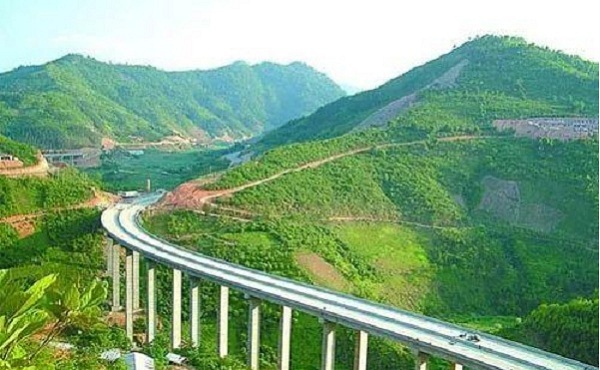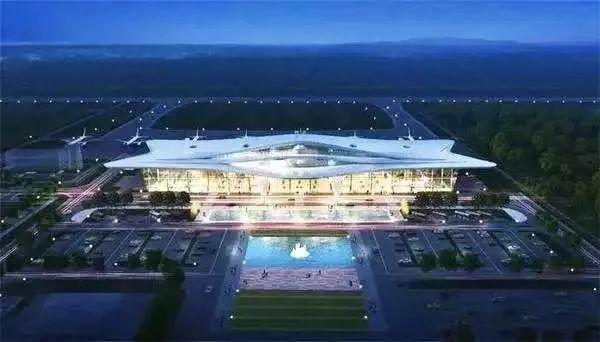
Guangxi introduces plan to align with Greater Bay Area

A high-speed bullet train of Guangxi flies by. [Photo/Guangxi Daily]
In order to grasp the major historical opportunities for the implementation of the construction of the Guangdong-Hong Kong-Macao Greater Bay Area, and speed up the construction work in Guangxi of aligning with the Greater Bay Area, the Party committee and government of Guangxi Zhuang autonomous region have recently issued the Implementation Plan for Integrating into Guangdong-Hong Kong-Macao Greater Bay Area (2019-2021).
According to the plan, Guangxi will increase its transportation interconnection to go eastward to the Greater Bay Area. For land travel, Guangxi is striving to integrate into the two-hour commuter circle in the Greater Bay Area through railway planning and construction, as well by fully opening interprovincial highways.

A highway in Guangxi. [Photo/Guangxi Daily]
In terms of shipping, Guangxi will promote the cooperation between ports in the Beibu Gulf area and large domestic ports in Hong Kong, Guangzhou, and Shenzhen, as well as develop liner routes from Guangxi to Guangdong, Hong Kong, and Macao. Guangxi will promote the intermodal transportation between the river ports and the key ports in the Greater Bay Area, as well as accelerate the integration into constructing world-class port groups in the Greater Bay Area. Guangxi will also strengthen the construction of the Pearl River-Xijiang River Economic Belt and the New International Land-Sea Trade Corridor.

An artist rendering of Guangxi Yulin Fumian Airport. [Photo/Guangxi Daily]
In terms of aviation, Guangxi will speed up the construction of the international aviation hub in the Greater Bay Area and build a regional international aviation center in the Beibu Gulf that will undertake domestic and ASEAN communication. In terms of information, the local government will promote Guangdong, Hong Kong, and Macao telecom operators and industry leading enterprises to participate in the development of Guanxi's digital industrialization and industrial digitalization.
The plan includes a strategy of building 15 to 20 industrial parks in Guangxi to undertake consumer goods processing and to support emerging industries of the Greater Bay Area. Guangxi will construct the Guangdong industrial undertaking belt, the Xijiang industrial undertaking belt, and the Beibu Gulf coastal-boundary industry undertaking belt. It will increase the development of trade and logistics clusters, as well as build a major distribution center for specialty agricultural products to the Greater Bay Area.
In addition, Guangxi will implement a precision investment action plan around the digital economy, new energy, comprehensive health, finance, modern logistics, as well as new manufacturing and new materials industries, striving to introduce 30 well-known enterprises in the Greater Bay Area by the end of 2021.
The plan will increase ecological cooperation, promote the establishment of an ecological environmental protection joint prevention and control mechanism, implement a joint action plan for the protection of the Pearl River and Xijiang River, as well as promote the cooperation between Guangxi and the Greater Bay Area in ecological construction and environmental protection key projects.
In addition to transportation interconnection, industrial transfer, and ecological cooperation, Guangxi will also focus on key areas such as poverty alleviation cooperation, platform guidance, policy convergence, talent exchange, and mechanism coordination to promote the implementation of major projects and major policies.




